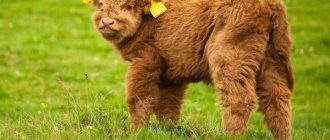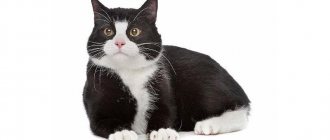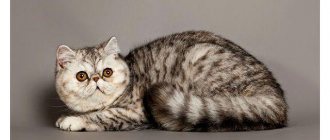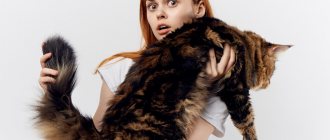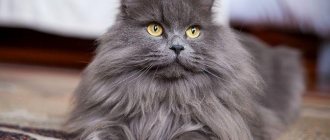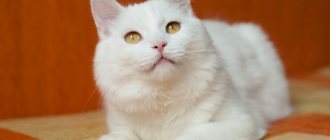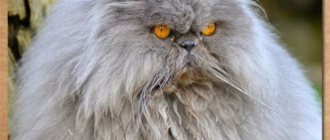The love for cats unites residents of different countries and continents, while some breed them, while others keep them in comfortable conditions, groom and cherish them, or admire the mustaches from a distance. There is a term to denote the professional activities of specialists who deal with cats: felinologist, and the science of cats is felinology.
From the article you will learn what a cat lover is called scientifically, is there a scientific definition for this profession, who is a felinologist, what does he do, what qualities should he have.
History of felinology
Felinology is the science of cats, the history of which began in the 19th century. In 1871, Harrison Ware decided to become a pioneer and organize an exhibition of purebred cats, which became the first event of its kind. It was thanks to the efforts of this man that the first breed standards later appeared. In 1887, Ware became president of the National Cat Club in Great Britain. The clubs that arose later merged into the British organization of cat lovers - GCCF.
In the USSR, clubs for cat admirers appeared almost 100 years later, namely in 1986. One of them was the “Felimur” club, and on its basis the Leningrad cat lovers club “Kotofey” arose.
In September 1986, cat fan clubs Soyuz, Felis, and Sirius began operating in Moscow. Since 1987, felinology has spread widely in other regions of the USSR.
In 1989, the “Soviet Felinological Federation” was created, which was later renamed the “Selection Felinological Federation”. Eldar Razroev became the first president of the SFF. During 1989-1993. SFF members collected and processed information, laid down traditions of maintaining breeding documentation and standardizing aboriginal cat breeds. The competence of the SFF also included such functions as conducting examinations and issuing expert certificates, organizing intercontinental cat shows, and creating a book of breed standards.
After the collapse of the USSR, clubs from the Baltics, Belarus and Ukraine left the SFF. In 1991, SFF was accepted into the World Cat Federation.
Reference. In April 1992, a judge from Russia participated for the first time at the World Cat Show.
Who studies cats?
As a professional activity, felinology has existed since the second half of the 19th century. It was during this period that communities of cat lovers began to appear in Great Britain, which later merged into a single organization, the Governing Council of the Cat Fancy (GCCF), focused on exhibition activities and standardization of animal breeds. Solving the problems facing the club members required specific knowledge. This is how felinologists appeared - specialists with a narrow focus who study such aspects of working with cats as:
- animal breeding;
- selection;
- development of products for pets (food, cosmetics, safe toys, etc.);
- supervision of factory circles and events held by them (exhibitions, etc.);
- training future colleagues - experts in the considered areas of activity.
Regardless of their profile, such specialists united in special organizations. Among the most respected felinological societies around the world, functioning to this day, are:
- The Governing Council of the Cat Fancy (GCCF);
- Federation International Feline (FIFe);
- World Cat Federation (WCF);
- The Cat Fanciers Association (CFA);
- The Cat Fanciers Federation (CFF);
- The International Cat Association (TICA);
- International Felinological Association (IFA) registered in Russia;
- International Cat Union (ICU);
- World Association of Cat Clubs (WACC);
- Alliance SuperCats (ASC).
Today, the tasks facing the participants of these clubs are somewhat different from those that were solved by representatives of this unusual profession 100 years ago. What are felinologists working on these days?
Field of activity of a felinologist
The term felinologist consists of two parts: lat. felinus, which means "cat" and logos - teaching, word. The name of the profession speaks for itself; a felinologist is a specialist who has knowledge in the field of cat physiology and breeding. At the same time, felinology is a science that studies cats, their anatomy and manners.
Despite the fact that cats have always lived next to people, breeding work began only in the 19th century. Experts of that time were engaged in determining breed standards taking into account their appearance and temperament. These standards were used during the first world cat exhibition, held in the capital of Foggy Albin in 1871. The event was organized by Harrison Weir, founder of the National Cat Lovers Club.
WCF - World Cat Federation unites 370 organizations. Its jurisdiction includes such tasks as developing breed standards, issuing certificates, and registering nurseries.
List of current federations and associations:
- ASSOLUX International.
- CFA.
- CFF.
- FIFe.
- ICU.
- TICA.
- WACC.
- ICEF.
- MFA.
- RFF.
Interesting things on the site:
Top 15 calmest cat breeds
White cat with different eyes - a breed or a mutation?
Felinological organizations
After the final choice of the breed that the breeder plans to breed, it is worth understanding some of the nuances from the organizational side.
Kennel and breeding club
The nursery is the largest organization in felinology. Each nursery is headed by a breeder. Even if there is only one cat, the owner can register the cattery, as she can participate in breeding and give birth.
Breeders are registered in the breeding club or directly in the felinological system.
Main objectives of the club
- issuance of documentation (pedigrees, certificates - title and nursery registration);
- registration of offspring;
- consultations on breeding (including assistance in selecting a pair for mating);
- preparation of exhibitions and more.
It can be argued that for a beginning breeder, participation in the club will be the optimal solution, because the club helps to solve basic issues, for example, selecting a pair for breeding.
Felinological systems
Not only breeding clubs, but also breeders themselves can be members of the felinological system. There are several dozen such organizations. Conventionally, felinological associations are divided into European and American. The main differences between them are the rules for holding exhibitions, judging them, and the nature of membership. Eg:
- European associations evaluate animals in a closed manner. The expert does not know which cattery the cat is presented to him from. As a result, the breeder receives a written conclusion with the characteristics of his pet. The most well-known felinological systems of this type are WCF, WWF, GCCF, FIFe and others;
- in American associations, the judge evaluates animals openly - publicly orally describes them. Examples of such systems are TICA, CFA, ASSOLUX and others;
- membership in some systems (for example, FIFe and others) is possible only through clubs - with direct physical interaction between the breeder and club employees;
- in some other systems, the breeder can be a member of the system directly, that is, bypassing the club (for example, ASSOLUX, TICA and others).
It is up to the management of the breeding club or the breeder to decide which system to join. It is worth noting that the club can remain neutral. Then experts from any association are invited to the exhibitions, but the organization must comply with the regulations of the felinological system from which the judge is invited.
The main tasks of the felinological system
Unlike a breeding club, the felinological system does not select parent pairs for breeding and does not check each litter for compliance with standards. These tasks lie with each specific nursery or club. The activities of the felinological system are aimed at:
- breeding, improving and adopting animal standards for each breed (including colors);
- creating a schedule, establishing the order of holding exhibitions;
- education and training of expert felinologists;
- provision of certificates and permits for organizing an exhibition;
- registration of titles and ratings of cats received at the exhibition, as well as issuance of confirming certificates;
- registration of nurseries;
- issuance of pedigrees and other documents necessary for the breeder.
Each feline system is independent. Accordingly, the organization, rules, and conditions in each may be individual. However, title offsets between systems are widespread (each system has its own list of systems whose titles and scores are counted). Requirements for animal standards, exhibitions and the like may also differ. Therefore, it happens that one breed may be recognized by one organization, but not meet the requirements of another.
Source
Subtypes of profession
There are several subtypes of the felinologist profession:
- Breeder - breeds cat breeds, cares about the pedigree of animals, participates in exhibitions as an assistant judge.
- The director of a nursery or felinological center does the same thing as a breeder, but more globally.
- An expert felinologist is a cat specialist with a higher education who knows everything about the anatomy of baleen cats, takes part in laboratory research, conducts training courses, heads nurseries or opens clubs.
- Judge - evaluates cats at shows according to modern standards, has a WCF license for professional activities.
The tasks of a felinologist, depending on their position in the specialists:
- breeding and sale of purebred kittens;
- grooming;
- preparing animals for participation in exhibitions;
- selection of individuals for breeding work;
- conducting research in the laboratory;
- development and testing of medicines, vitamins, care products, feed;
- providing consultations and training for newcomers;
- organization of nurseries;
- participation in judicial commissions;
- assessment of the character and behavior of cats;
- identifying individuals that do not meet breed standards.
What is the name of the science of cats and what does it do? Felinologist: who is this? Cat science title
The behavior of cats is not easy to study due to their lesser attachment to humans compared to dogs - they are rather reluctant to participate in experiments. However, we do know a few things about how cats were domesticated, how feline society works, and whether our pets make evil plans.
Source
How to turn your passion for cats into a profession and what will you have to do? What are the features of the felinologist profession and what personal qualities do you need to have to achieve success in felinology? You can learn about all this within this article.
What personal qualities does he have?
Key qualities of a felinologist: love for animals, determination, perseverance and attention to detail. Only with such a set of personal qualities can one begin professional training. Also, a felinologist must have an excellent memory, grasp information on the fly, and be able to work with large amounts of information.
Keeping cats requires a lot of time and responsibility. For a practicing felinologist, the relevance of this requirement increases several times. The breeder must be careful and scrupulous, because maintaining order in a house where a whole family of cats lives is a lot of work.
Honesty, the ability to notice details, punctuality, and an analytical mind are qualities that are important for the judicial profession. At exhibitions you need to be able to communicate with different people, maintain subordination, and have a sense of tact.
How to become a felinologist?
The first university providing official felinological education in Russia appeared in 2002. The corresponding department was opened at the Moscow Agricultural Academy named after K. A. Timiryazev.
By 2020, the number of specialized educational institutions in this area has increased significantly. Today, “credentials” as a felinologist specialist can be obtained at almost any agricultural or agricultural university in the country. A graduate of such a university officially becomes a cat breeder. You will have to spend only 5 years on this.
To become a professional breeder, by today's standards, you don't even need such a diploma. You can legally open your own nursery by receiving just a certificate indicating that its bearer has completed a full-time or correspondence course in this specialty.
It is more difficult to acquire the status of a felinologist-expert. In addition to taking the usual courses for breeders, those who want to become such a specialist will have to regularly attend relevant seminars to improve their skills.
Here, many may have a logical question: isn’t keeping and breeding cats, even purebred ones, just a pleasant hobby? Why invest so many resources - time and finances - into getting an education in a field that is essentially just a hobby, but not a full-fledged profession?
It is impossible to answer this question unequivocally. Felinology as a field of activity requires such a specific combination of professionalism and personal involvement in the process that it is very difficult to compare it with any other work.
On the one hand, animal specialists and experts who evaluate cats work according to a schedule and have a fixed salary. Professional breeders can even feel like businessmen, receiving a good income from the sale of raised animals. On the other hand, the listed areas of activity require the investment of such an amount of personal time and finances that it is simply impossible to do something like this without a living passion and interest.
In short, a felinologist is a very promising and highly paid specialty at the moment. However, only those who really care about cats and are ready to devote their entire lives to caring for these animals should get an education in this profile.
Salary
A specialist who has graduated from a university has the right to work in a laboratory, head a club or nursery, teach courses, and consult.
A felinologist without a higher education, but with a certificate of completion of specialized courses, can become a breeder. He can realize his professional qualities in a nursery or work as an expert felinologist.
The average salary in Russia is 85,000-90,000 rubles. In Moscow, felinologists earn from 50,000 to 150,000 rubles. Felinologist vacancies can be found on specialized websites.
Where is felinological knowledge used?
Now, while receiving a felinological education, a student acquires general knowledge in zoology, breeding, etc. However, at the same time, he also masters a narrow specialization. In modern “cat science” there are several main directions. So, a felinologist can become:
- Livestock specialist. He studies issues of physiology and selection of cats in a specialized scientific institute or laboratory. At the same time, he can give practical advice on keeping and breeding animals.
- Breeder. A specialist with the appropriate education has the right not only to breed purebred animals on his territory, but also to officially establish a nursery for rare cats.
- An expert. These high-class professionals are mainly involved in evaluating participants at cat shows.
It is worth noting that each of the listed specialties requires a different level of education. How to get this or that specific profession?
Where do they study to become a felinologist?
Before choosing a university or training courses, you need to decide on the direction of work. A person who keeps a purebred cat and has the appropriate documents for it, improves knowledge, receives new data from open sources, can become a breeder. If desired, he can enroll in felinologist courses in order to deepen his knowledge and further develop in the chosen direction.
Those who set themselves the goal of becoming a judge should prepare in a more serious way, namely, by spending several years studying different breeds of cats and delving into science. A prerequisite for obtaining a WCF refereeing certificate is passing special courses. The opportunity to evaluate rare cat breeds is given to those who have undergone separate training and have a certificate.
An expert felinologist can be someone who has a higher education in the field of veterinary medicine or animal engineering. Training in such specialties is carried out in many universities in Russia. The best ones:
- State Agricultural Academy in Kostroma;
- Ryazan State Agrotechnological University named after. P. A. Kostycheva;
- State Agricultural Academy in Tver;
- Russian State Agrarian University - Moscow Agricultural Academy named after K. A. Timiryazev.
What should knowledge be?
A felinologist is not a synonym for a veterinarian. A specialist is not required to understand diseases, but he must know all breed standards approved by leading international cat associations.
His responsibilities include not only accurately determining whether an animal belongs to a particular variety, but also identifying the correct “breed” traits. In this area there are many external factors (color, paw length, head size and shape, height at the withers, ear structure, etc.) that determine the standards.
With such knowledge, felinologists are indispensable at competitions and at the stage of examining breeding kittens.
The salary of a specialist starts from 40-60 thousand rubles, and the upper limit, especially when working for a private employer, is not defined.
Advantages and disadvantages of the profession
You can become a true professional in your field if you are interested in what you do. The profession of felinologist is chosen by people who truly love cats. Specialists with a good knowledge base and practical skills are highly valued. They are the ones they go to for help and consultations. Successful professional activities are evidenced by the diplomas and certificates that their “wards” receive at exhibitions.
Each subsequent victory increases earnings, since the cost of cats with a confirmed pedigree increases after receiving a diploma. The income of breeders is also influenced by the breed chosen for breeding, the ability to sell their services, as well as the number of cats in their care. The average monthly profit is about 50,000 rubles.
A felinologist is not limited by a strict schedule (with the exception of laboratory assistants), so the profession can become both the main and additional source of income.
Another advantage of working as a felinologist is the opportunity to travel to different countries, meet interesting people, make useful contacts, learn from the experience of other specialists and share your experiences, and take part in international exhibitions.
The profession also has a number of disadvantages:
- caring for cats requires time, moral and physical costs;
- financial investments in training will be required;
- The breeder's income largely depends on the cat breeds;
- a narrow field for action, since the sales market is very specific, and demand does not always equal supply;
- high competition sometimes eliminates the desire to work in this field;
- commercial success depends on fashion trends, which change frequently, so you need to adapt to them so as not to “burn out.”
What does felinology do, why is this section of zoology called that?
Why is the field of zoology that deals with the study of cats called felinology? This word comes from the Latin root "felinus". Combined with the widely used ancient Greek "λόγος", it is literally translated into Russian as "cat science".
It was difficult to find a more precise definition for the name of the direction, which studies the physiology of cats, develops optimal conditions for keeping them, as well as standardizes breeds (including breeding new ones and improving existing ones).
Modern felinological science covers even more types of activities directly related to breeding and caring for domestic felines. This may include:
- organizing and holding cat shows;
- creation and registration of nurseries for breeding purebred animals;
- exercising supervision over all of the above areas.
Like any scientific activity, felinology should be carried out by specialists with appropriate specialized education. What are such people called and what areas of cat life are within their competence?
Responsibilities
Felinologists are big cat lovers who have managed to turn their passion into their life’s work. The profession is represented in several areas: expert felinologists, breeders, nursery managers, judge felinologists.
An expert felinologist is a true cat expert. He can easily determine whether an animal belongs to a particular breed. A specialist is often approached to identify the most “promising” kitten from a breeding point of view.
To become a felinologist judge, you must obtain the appropriate license, which is issued after completing paid courses. The judge must have an excellent knowledge of the breed standards developed by the World Cat Federation (WCF). This document contains detailed information about the characteristics of the head, paws, neck, tail, body, coat and color. A point scale for evaluation with a detailed explanation is also given here.
Breeders and managers of nurseries are most often owners of purebred cats. These are specialists in breeding and selection of animals.
